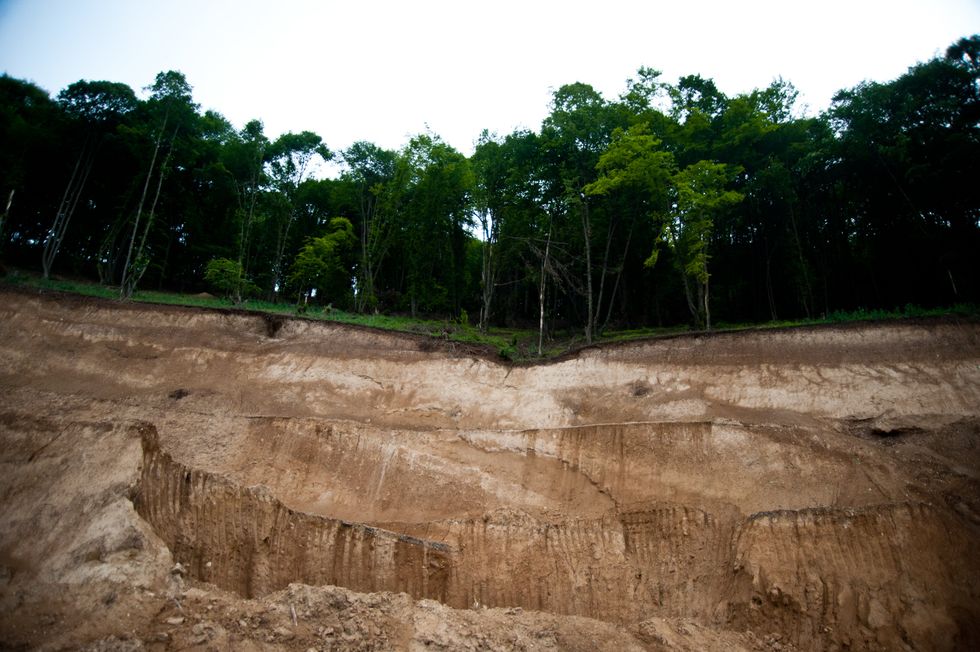With the AP exams in May approaching quickly, my AP Environmental Science class has wasted no time in jumping right into labs. To demonstrate the damage to the environment done by strip mining, we were instructed to remove the chocolate chips from cookies.
The experiment in itself was rather simple. We profited from fully or partially extracted chips ($8 for a full piece and $4 for a partial) and lost from buying tools, using time and area and incurring fines.
This might seem simplistic, but it showcased the nature of disastrous fossil fuel companies.
We were fined a $1 per minute we spent mining. It cost $4 per tool we bought (either tweezers or paper clips) and 50 cents for every square centimeter of cookie we mined.
Despite the seemingly overbearing charges compared to the sole way to profit, it was actually really easy to profit.
If we found even a partial chocolate chip per minute, that's $3 profit or utilization elsewhere. Tools were an investment that could be made up each with a partial chip, and clearly we were able to find much, much more than just one partial chip per tool.
Perhaps the most disproportionally easiest thing to get around were the fines. We were liable to be fined for habitat destruction, dangerous mining conditions with faulty tools, clutter, mess and noise level. No one in the class got fined for noise level nor faulty tools, but we got hit with habitat destruction and clutter, both of which added up to a mere $6.
We managed to avoid higher fines by deceiving our teacher by pushing together the broken cookie landscapes and swiping away the majority of our mess before being examined for fining purposes. This was amidst all of our cookies being broken into at least three portions.
After finding many, many chips, despite the costs of mining, we profited over $100. We earned a Franklin for destroying our sugary environment.
We weren't even the worst group.
It was kind of funny the situations other groups simulated to their cookies. We were meant to represent strip mining, but one group decided to represent mountaintop removal. Mountaintop removal is where companies go to extract resources from the tops of mountains via explosions to literally blow the tops off. This group did this by literally pulverizing their cookies to bits and pieces with their fists.
They incurred the maximum fine of $45. They didn't profit $100, however.
They profited over $500 dollars.
In the context of our environmental science class, these situations were anywhere from funny to satisfying. In the context of the real world, however, the consequences are devastating our environment.
Without even mentioning the current trajectory we're on approaching a near irreversible global temperature increase even if we took drastic measures this moment, mining and fracking is literally destroying ecosystems.
We think of earthquakes as creating mass amounts of sudden movement and unholy deep trenches as they fracture our crust. With dangerous mining habits, we do this ourselves.
Bigger companies not even related to mining end up destroying the planet and even hundreds of thousands of lives. ExxonMobil, BP? Still thriving in business after serial oil spills over the course of their operation. Purdue Pharma, the company who has misled the medical community for decades about the effects of OxyContin and its potential for abuse, is still running and ruining multitudes more lives every single day.
Did these companies receive fines? Yes.
But their business model is too profitable to make the fines have just about any effect upon their operation.
In our cookie mining simulation, we found that completely obliterating the landscape was much more profitable than being careful and walking on eggshells around the laws. Large, too-big-to-fail companies have held the future of our planet in their greedy paws and have likewise pulverized our environment, soon enough to be unable to return from.




















